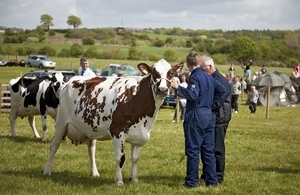The next phase of the roll-out of the EU Settlement Scheme, which allows resident EU citizens and their family members to obtain their UK immigration status, has been confirmed in the Immigration Rules.
This follows the successful first private pilot, involving 12 NHS Trusts and 3 universities in the North West of England, which had very positive feedback from customers on the ease of the application process.
The second phase will run from 1 November to 21 December 2018 and will test the full online application process. The number of participating organisations will increase significantly, with staff in the higher education, health and social care sectors across the UK included in this phase.
Vulnerable people with additional support needs are also going to be included in this phase, with the involvement of a small number of local authorities and community organisations.
This second test phase will help to make sure that the EU Settlement Scheme will operate as effectively as possible when it is fully open.
Immigration Minister Caroline Nokes said:
As this Government has consistently made clear, EU citizens make a huge contribution to our economy and to our society and we want them to stay.
The EU Settlement Scheme will make it simple and straightforward for EU citizens to get the status they need but it is important that we get this right.
I am pleased with how the first phase of the scheme has progressed, especially that those who have applied have found the process easy to use.
The Rules also introduce the new form of immigration leave for children transferred to the UK during the Calais camp clearance to reunite with family here, as announced in September 2018. Calais Leave will grant those who qualify the right to study, work, access public funds and healthcare, and apply for settlement after 10 years.
The changes also include bringing forward a new application service for visas. The new service builds on UKVI’s digital application platform and will transfer all data, such as supporting evidence and biometric information, to UKVI digitally. This is a significant step towards UKVI’s ambition to become more digital and user friendly.
As announced in May 2018, the new front-end service will be operated by Sopra Steria and will begin to be rolled out from next month.
The UK Visa and Citizenship Application Services centres will be available across the country, with six core centres in Manchester, Birmingham, Glasgow, Cardiff, Belfast and Croydon as well as a premium lounge in London. These will be supported by an additional 50 enhanced service points providing coverage across the UK.
There will also be additional services which include being able to upload your evidence from home or arranging a mobile service to come to your business, university or home.
The Rules are also being amended to specify the evidence for medical exemption from Knowledge of Language and/or Life in the UK requirements. The changes include specifying the medical professionals who can support a request for exemption and the format in which this request must be made.
These changes will come into force on 1 November 2018.
Further information on the EU Settlement Scheme can be found on GOV.UK.

